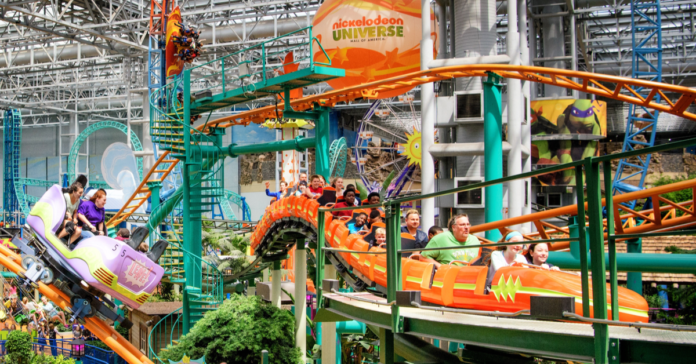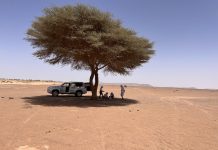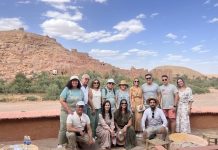For many people, vacation planning is exciting and rewarding. Selecting the best destination, reserving the perfect hotel, and choosing among a myriad of attractions and activities all contribute to the anticipation of fun times to come.
But for families and individuals with autism, vacation planning can be stressful. Autism is a complex, lifelong developmental condition that typically appears during early childhood and can impact a person’s social skills, communication, relationships, and self-regulation. It’s estimated that 5.4 million adults and 1.5 million children have been diagnosed with autism.
For those with autism, concerns about long lines, loud noises, and bright lights might overshadow any hopes for enjoyment while on vacation. Add in the unpredictability of travel and vacations can become daunting. In fact, for those with autism or other sensory challenges, it might just be easier to stay home.
Comfort Suites Visalia, Certified Autism Center (Photo Credit: Comfort Suites Visalia)
What An Autism Certification Means
A new trend in travel is allowing those with autism to have a third option; planning a trip to a destination that takes their needs into account. That’s exactly what Autism Travel does. The International Board of Credentialing and Continuing Education Standards (IBCCES) offers training and certification in autism and special needs care to hotels, restaurants, attractions, and even cities. Achieving this certification requires at least 80 percent of customer-facing staff to complete training. Recertification takes place every 2 years to ensure destinations continue to be informed and prepared for their guests.

Why Autism Certification Is Important
Physical disabilities are often easily identified and the accommodations needed are readily apparent. A wheelchair ramp, handicapped parking, and larger restroom stalls are just some of the ways a business helps it’s disabled patrons with access.
But for those with autism — and many other invisibile disorders — accommodations rarely exist. The offers of assistance that may be provided to someone with a visible disability often aren’t matched for those with an invisible one. As a result, travel may be avoided altogether, and that’s unfortunate. As Meredith Tekin, president of IBCCES, says, “Everyone deserves to have travel experiences and memories.”
Gradually, destinations all over the U.S. — and a few in other countries — are learning ways to assist their autistic visitors. Staff that have been trained are more aware of autism, prepared with strategies for communication, and have a greater understanding of common concerns. A certified restaurant may offer quieter seating options while a hotel may allow an autistic individual to bypass a long line. Theme parks can provide a quiet space to retreat when a break from the noise and crowd is needed. And maybe most importantly, staff are prepared to recognize stressful situations and offer assistance, all without judgment.

Certified Autism Centers And Destinations
In 2021, Visit Visalia became the first Destination Marketing Organization (DMO) in California and among a few in the United States to be recognized as a Certified Autism Destination. The decision to do so wasn’t difficult. Nellie Freeborn, executive director of Visit Visalia, noticed how comforting the nearby national parks of Kings and Sequoia were to individuals with autism. Yet they would struggle with the selection of hotels and restaurants in her hometown. The opportunity to make the entire journey more enjoyable for these folks was too important to pass up.
Over the course of several months many businesses in Visalia began the certification process. Today the Marriott, Comfort Inn & Suites, and Hampton Inn have all become Certified Autism Centers. Several attractions have joined them, including Tulare County Museum and Valley Oaks Golf Course. In partnership with other certified places within California, an Autism Friendly Family Road Trip has been created that includes theme parks, zoos, and museums. Places that once might have caused anxiety for families can now be places of enjoyment.

Visalia is joined by over a hundred other certified locations around the country and a growing list of applicants. In Tempe, Arizona, a number of popular places have achieved certification including their library, history museum, arts center, and local park.
Even larger brands are joining these efforts. Kind Hospitality, a restaurant group based in Arizona, achieved certification for all of it’s restaurants including Panera Bread, Macayo’s Mexican Food, and Barrio Brewery. This includes several of their restaurants at Phoenix Sky Harbor and Phoenix-Mesa Gateway Airports, representing the first airport businesses to be part of the program.
Several theme and water parks across the country have joined the program as well. For these participants, certification includes the development of a sensory guide for every ride and attraction, thoroughly describing the experience. These guides in turn allow autistic visitors to decide if the ride is something they wish to enjoy. Peppa Pig Theme Park in Florida, Hershey’s Chocolate World in Pennsylvania, and Nickelodeon Universe in Minnesota are all Certified Autism Centers.

What This Certification Means For Visitors
As Nellie Freeborn of Visit Visalia and her staff were completing the training for certification, it became clear to them that families with autistic children, and even autistic adults, face tremendous barriers when it comes to travel. Just this awareness alone has given many of the staff in hospitality businesses in the city greater empathy and understanding for their autistic visitors. For many families, a kinder and more patient staff will be a critical step in improving their vacations. Meredith Terkin of IBCCES points out that there’s generally a lack of awareness and sensitivity about autism in our country, so as more businesses around the country become certified, it’s hoped that the attitudes towards these individuals will be much more positive and helpful.
One of the Visalia’s concrete steps is offering loaner backpacks that include noise canceling headphones. Many autistic individuals find that too much noise is upsetting and hard to process. With these headphones, they block out the noise while others in their party may continue to enjoy the current experience.
At Peppa Pig Theme Park, sensory guides are available on the website to help parents and their children understand the rides prior to their visit. This information is reinforced with signage throughout the park. Combined with thorough staff training, the experience for autistic guests will be predictable and manageable, and likely to reduce stress.
For more helpful travel tips, check out these stories:










